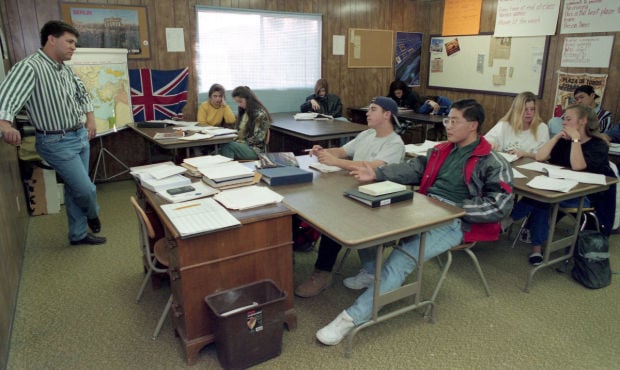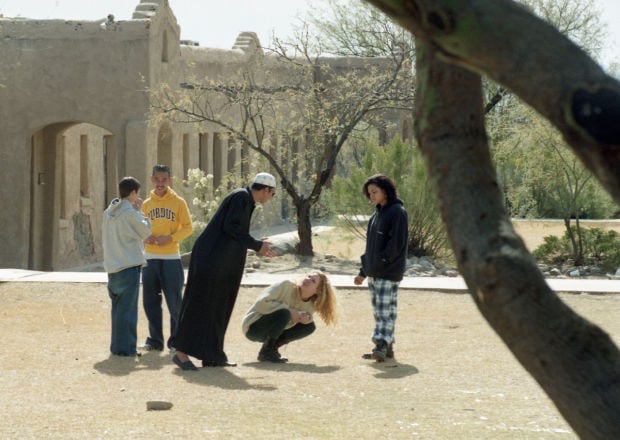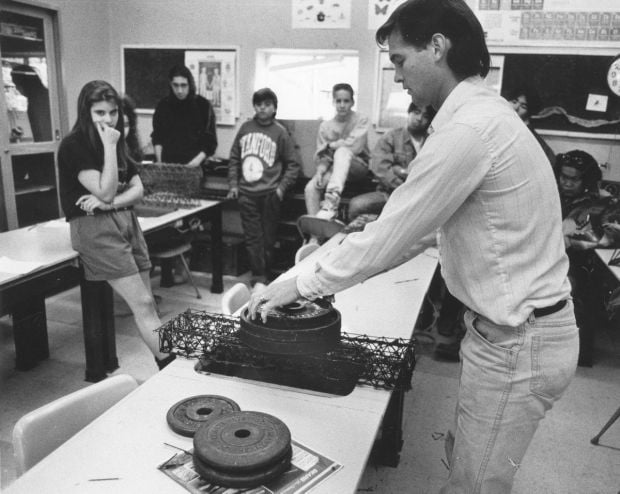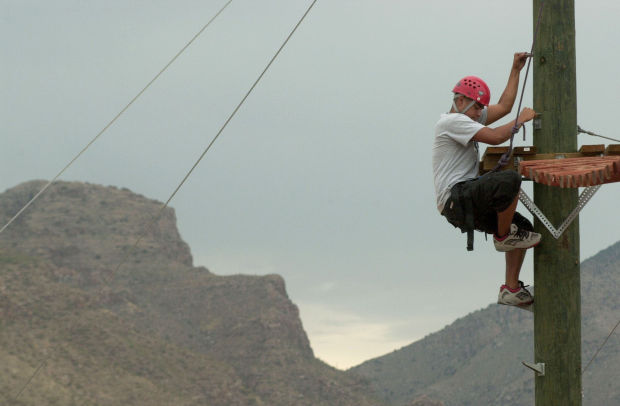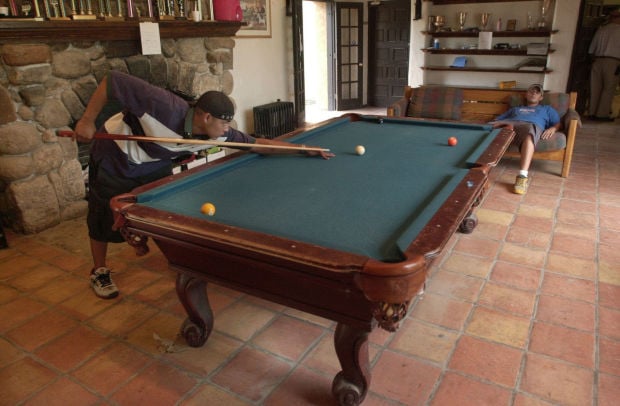A once-popular boarding school in the Sabino Canyon area — which attracted children of prominent families — is taking a year off to reinvent itself due to sagging enrollment and finances.
The 70-year-old Fenster School, which on its website prides itself as a place where “Change happens every day,” will spend the 2014-15 school year doing renovations. The school’s annual summer camp also is not operating this summer.
Its officials are negotiating with two parties — who have declined to be identified — to take over and operate the school the following year, said Kenneth Fenster. He’s on the school’s board of directors, is a former Fenster School headmaster and is son of the late George and Kitty Fenster, who founded the school in 1944.
Since that time the school has moved from what was then at the metro area’s edge near Country Club Road and Blacklidge Drive to its current location, which is at the metro area’s current edge. The school lies on 140 acres of desert, with Sabino Creek winding through its eastern edge.
Its annual tuition has risen from $1,500 when it opened to $30,000 today. Its student body, around 150 at its peak, dropped to about a dozen in the past year, due to the recession, Fenster said. Private school was one of the first things parents were willing to give up when the recession hit, he said.
Today, school officials have signed nondisclosure agreements with two entities seeking to take over the place, he said. He describes one as a “therapeutic-adult-type thing that would lease the plant and operate it under their name.” The other entity, which works with children, “would probably operate under our name” and keep it as a school, Fenster said.
Fenster, who describes himself as more optimistic about the school’s future today than a month ago, said last week that he’ll never allow it to be subdivided. Concerns that it could get developed have arisen among neighbors and environmentalists, as it would be prime Foothills real estate.
Based on his and his parents’ wishes, the school’s articles of incorporation only allow it to be sold to another nonprofit corporation, Fenster said.
“The place is not for sale. It’s never going to be turned into any kind of subdivision. Somehow, we are going to see to it that it just stays something good for the community,” Fenster said.
Another director, Donald Pitt, a longtime Tucson real estate developer-investor — and Fenster’s University of Arizona fraternity brother in the early 1950s — agreed that this site is not bound for development.
“We’re changing the format to keep up with the change in educational needs,” Pitt said. “The Fenster School is a nonprofit corporation. Whatever we do will benefit education and/or the community.”
70 years of education
Fenster’s parents had brought their children from New York City to Tucson back in 1941 due to George’s rheumatoid arthritis, which was crippling him at the time. The elder Fensters moved into a rental home, with adobe walls 18 inches thick, on an acre of land whose nearest neighbor was a goat farm, the couple told Arizona Daily Star columnist Bonnie Henry in 1989.
Three years later, the two started a private coed school named Fenster Ranch School on the property, the first such boarding school in Southern Arizona. It was aimed at educating kids with rheumatic fever, asthma and related breathing problems, they said 45 years later. By the time the first high school student graduated in 1947, the school was offering everything from Latin to European history, they told Henry. At the time, the young artist Ted De Grazia, later world-renowned, painted murals on the school’s cafeteria.
Over time, the campus grew to 15 acres dotted with classrooms, dormitories, a library, a dining hall, tennis courts and a swimming pool. It built its reputation as a college preparatory school, running from 8th through 12th grades. School officials have said it attracted the rich and famous, but didn’t disclose names.
In 1974, the school moved out east to where it stands today, replacing the Southern Arizona School for Boys, which had closed a year earlier.
In the early 1980s, the school also was considering closing, as its enrollment sagged during another severe recession. It turned operations over to Don Saffer, a former UCLA basketball player and educator, who as headmaster introduced a “consequence-based” system in which rule breakers were sentenced to hours of labor in the desert. The purpose was to help chronic underachievers turn their lives around.
“We want kids to come to their own realization there’s a better way to live,” Saffer said in 2001. “It’s tough here. Kids don’t come here saying, ‘I’ve been looking for this’ — but when they get here and achieve, they learn to love it.’”
Temporary changes
Through the years, the school has built an educational structure employing small classes, individual attention and a “very rich curriculum” with lots of music and art classes, along with classes in archeology, Kenneth Fenster said last week.
Until recently, “we were getting ready to start an astronomy program. We have an astronomer still living at the school,” said Fenster. The school’s faculty and staff now numbers a dozen, compared to 50 at its peak about 15 years ago.
“They ran out of funds and cut back programs and cut back the attractiveness of the school,” Fenster said. “It was kind of a cycle going down and down and down.”
Two months ago, the Fenster management was approached by one of the two entities interested in taking it over, and the second one approached the school “very recently,” Fenster said.
That second organization had approached the school a year ago “and we didn’t even consider it,” he said. But a couple of weeks ago, Fenster went to visit some of its facilities outside the Tucson area and “I was quite impressed,” he said.
Now, regardless of which organization takes over the school, it would just take over temporarily, Fenster said. The first priority would be to get the school plant renovated, he said. The current Fenster directors would play an active administrative role in shaping the school’s future.
The directors are still looking at developing educational programs to serve the needs of college-ready students, Pitt said. The one-year shutdown is positive, because it gives the board of directors a chance to step back and look and see what changes should be made, he said.
“It is highly probable the school will be back the following year,” Pitt emphasized. “We are not closing it on a permanent basis.”


